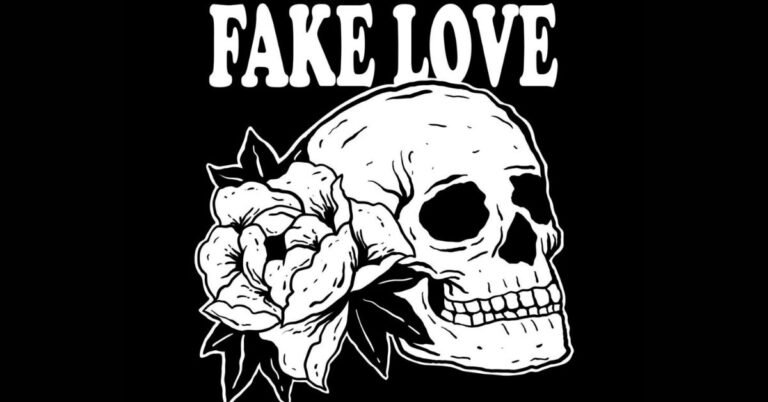You’re Not Just Dating Her — You’re Dating Her Past
When you love a girl with childhood trauma, you’re not only dating who she is today — you’re meeting the echoes of her past.
You’ll bump into:
- The voices she grew up hearing (“You’re not enough.”)
- The defense mechanisms she built to survive (shut down, explode, withdraw).
- The invisible wars she fights daily in her own head.
👉 According to the CDC, 1 in 4 girls experience sexual abuse before 18, and nearly 2 in 3 adults report at least one adverse childhood experience (ACE). These scars follow her into adulthood.
She may look fine — confident, educated, even strong. But behind that is a child who never truly felt safe.
Why She Explodes Over Small Things
Ever made a casual comment and got an emotional explosion in return? That’s not her being “dramatic.” It’s a trigger — a reminder of old pain you didn’t cause.
Example: You joke about her being “lazy” or “jobless.” She hears: “I’m worthless. I’ll never be enough.”
💡 Fact: Triggers activate the brain’s amygdala, flooding it with stress hormones. That’s why trauma survivors often react with fight-or-flight — not logic.
👉 I’ve lived this. With Daisy, even harmless teasing backfired. I became “Mr. Perfect” — soft affirmations only. But she later said I was boring and fake. Proof that trauma-love is a tightrope: too soft, you’re fake; too honest, you’re cruel.
The Truth Behind Her “Strong” Personality
Many girls with childhood trauma seem like the strongest ones in the room. But often, it’s armor, not healing.
She learned early:
- “If I show weakness, I’ll be hurt.”
- “If I depend on someone, I’ll be abandoned.”
So she may:
- chilhood trauamDismiss compliments.
- Get offended quickly.
- Criticize you when insecure.
👉 Studies show women with unresolved trauma are 3x more likely to struggle with trust and intimacy in relationships.
Types of Childhood Trauma That Shape Her
1. Abuse & Neglect:
- Physical: harm through force.
- Sexual: non-consensual acts.
- Emotional: words/actions that destroy worth.
- Neglect: unmet physical, emotional, or educational needs.
2. Violence & Exposure:
- Domestic violence in the home.
- Bullying and humiliation.
- Community or war-zone violence.
3. Other Events:
- Natural disasters.
- Accidents or medical trauma.
- Death/loss of loved ones.
Impact:
- Mental: PTSD, anxiety, depression.
- Physical: chronic pain, illness.
- Emotional: anger, trust issues, low self-worth.
💡 Fact: The famous ACEs study shows trauma increases risk of depression by 460% and suicide attempts by 1220%.
🤕 What You’ll Experience Loving Her
- You’ll feel like the “bad guy” when she’s triggered.
- You’ll walk on eggshells, afraid of saying the wrong thing.
- You’ll pour love and still hear: “You don’t care.”
- You’ll get criticized — often unfairly.
What she really means is:
“I’m scared you’ll leave me too… so I’ll push you away before you can.”
How to Support a Girl With Childhood Trauma
- Listen more than you fix — sometimes she just needs space.
- Respect her boundaries — trauma survivors need control over their space.
- Stay calm — your energy helps regulate hers.
- Be patient — healing is not linear.
- Show up in daily ways — small acts prove stability.
- Protect your own peace — don’t burn out.
What to Say (and What Not to Say)
Say This:
- “I’m here for you.”
- “Thank you for trusting me.”
- “You are loved.”
- “How can I support you right now?”
Never Say:
- “Just get over it.”
- “Others had it worse.”
- “It wasn’t that bad.”
- “I know how you feel.”
🧠 Before You Commit, Ask Yourself…
- Can I love someone who won’t always show love clearly?
- Am I strong enough not to take her triggers personally?
- Can I hold space for her healing without losing myself?
👉 Loving someone with childhood trauma is a battlefield of softness and boundaries.
Final Words
If you’re loving a girl with childhood trauma, you’re not weak. You’re a warrior. But don’t let her wounds destroy your peace.
Love her. Respect her story.
But remember — you deserve peace too. Sometimes, walking away isn’t failure.
It’s survival.
🔥 FAQs About Childhood Trauma in Relationships
Q: Can someone with childhood trauma ever fully heal?
Yes. Healing is possible with therapy, safe love, and time. But it’s often lifelong management — not instant transformation.
Q: How do I avoid trauma bonding?
Set boundaries. Love her, but don’t enable toxic cycles. A healthy relationship must include growth for both of you.
Q: Should I stay if it’s draining me?
If her trauma constantly drains your peace and you’re losing yourself, it may be healthier to step back. Supporting someone shouldn’t mean self-destruction.




